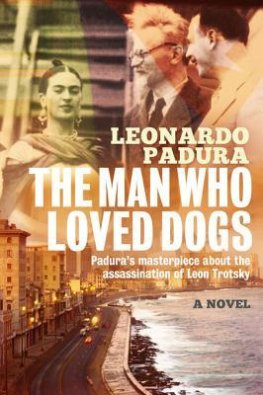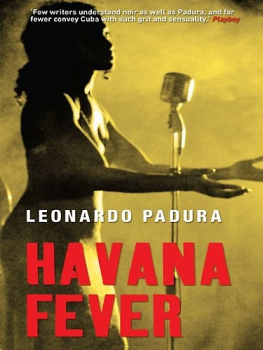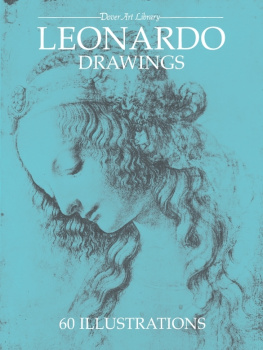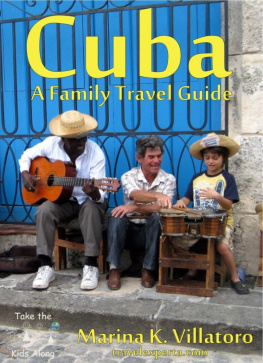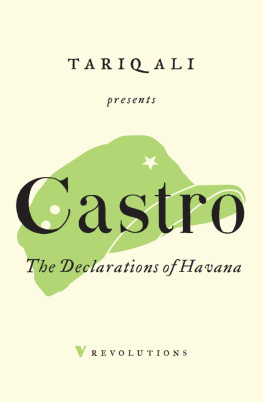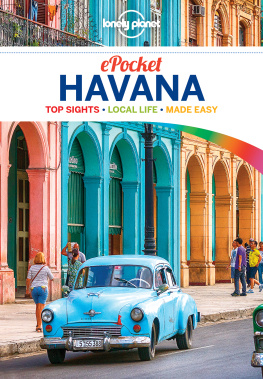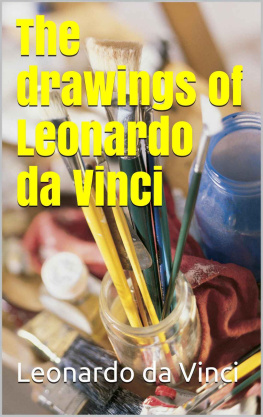Leonardo Padura - Havana Red
Here you can read online Leonardo Padura - Havana Red full text of the book (entire story) in english for free. Download pdf and epub, get meaning, cover and reviews about this ebook. genre: Detective and thriller. Description of the work, (preface) as well as reviews are available. Best literature library LitArk.com created for fans of good reading and offers a wide selection of genres:
Romance novel
Science fiction
Adventure
Detective
Science
History
Home and family
Prose
Art
Politics
Computer
Non-fiction
Religion
Business
Children
Humor
Choose a favorite category and find really read worthwhile books. Enjoy immersion in the world of imagination, feel the emotions of the characters or learn something new for yourself, make an fascinating discovery.

- Book:Havana Red
- Author:
- Genre:
- Rating:5 / 5
- Favourites:Add to favourites
- Your mark:
- 100
- 1
- 2
- 3
- 4
- 5
Havana Red: summary, description and annotation
We offer to read an annotation, description, summary or preface (depends on what the author of the book "Havana Red" wrote himself). If you haven't found the necessary information about the book — write in the comments, we will try to find it.
Havana Red — read online for free the complete book (whole text) full work
Below is the text of the book, divided by pages. System saving the place of the last page read, allows you to conveniently read the book "Havana Red" online for free, without having to search again every time where you left off. Put a bookmark, and you can go to the page where you finished reading at any time.
Font size:
Interval:
Bookmark:
Havana Red
Leonardo Padura
We all wear masks.
BatmanThe heat is a malign plague invading everything. The heat descends like a tight, stretchy cloak of red silk, wrapping itself round bodies, trees and things, to inject there the dark poison of despair and a slower, certain death. It is a punishment without appeal or relief that seems ready to ravage the visible universe, though its lethal vortex must fall on a heretic city, on a district condemned to hell. It tortures mangy, forlorn street dogs searching for a lake in the desert; old men dragging sticks that are more exhausted than their own legs, as they advance against the summer solstice in their daily struggle for survival; once majestic trees, now bent double by the fury of spiralling temperatures; dead dust piled against the sidewalks, longing for a rain that never comes or an indulgent wind, presences able to upset their becalmed fate and transform them into mud, abrasive clouds, storms or cataclysms. The heat crushes everything, tyrannizes the world, corrodes what could be saved and arouses only the most infernal wrath, rancours, envies, hatreds, as if it intended to provoke the end of time, history, humanity and memory. .. But how the fuck can it be so hot? he whispered as he removed his dark glasses to dry the sweat dirtying his face and spat into the street a minuscule gob of phlegm that rolled over the parched dust.
The sweat burned his eyes, and Lieutenant Mario Conde looked up at the sky to clamour for a cloud that would augur relief. And then the shouts of glee hit his brain. The cacophony hurtled towards him, a rehearsed chorale expanding as if it had erupted from the earth and careered on the afternoon heat, rising up momentarily above the din of traffic and lorries rushing along the Calzada, gripping Condes memory in a sullen embrace. But he saw them as soon as he reached the corner: while one lot celebrated, clapped and shouted, others argued, also at the top of their voices, and eyed each other up like real enemies, blaming each other for the same reason the others were so happy: vanquished and victors, he quickly concluded as he stopped to survey the scene. There were boys of various ages, between twelve and sixteen, of every colour and shape, and Conde thought how, if someone had stopped on that same corner, in that same district, twenty years ago on hearing a similar outcry, hed have seen exactly what he could see now, boys of every colour and shape, except the guy celebrating or arguing most would have been him, the young Conde, grandson of Rufino Conde, or the Count as he was known to everyone. Suddenly he enjoyed the illusion that time didnt exist there, because it was that side-street which had served ever since as an area for playing baseball, though some seasons would see a sly, treacherous football appear, or a basketball hoop nailed to an electricity post. But soon baseball with bat, hand, four bases, three rolling-a-fly or at the wall would impose its rule not too acrimoniously, over those passing fads: baseball infected them, like a chronic passion, and the Count and his friends suffered virulent attacks.
Despite the heat, August afternoons had always been the best for playing baseball on the street corner. Holiday time meant everybody was in the neighbourhood all the time, and had nothing better to do, and the hyper-active summer sun allowed you to play on beyond eight oclock at night when a game really deserved to be extended. Recently, however, the Count had seen few games of baseball on the street corner. The boys seemed to prefer other less energetic, more sweet-smelling diversions than running, hitting and shouting for several hours under a scorching summer sun, and he wondered what boys nowadays could possibly do on long summer afternoons. Not like them: they always played baseball, he recalled, and then recalled how few of them were left in the neighbourhood: while some went in and out of prison for lesser or greater crimes, others had moved on to such disparate destinations as Alamar, Hialeah, Santiago de las Vegas, Union City, Cojimar or Stockholm, and one had even collected a one-way ticket to the Colon Cemetery: poor Marquitos. Consequently, even if theyd wanted to and still had enough strength left in their legs and arms, the guys from that era could never organize another game of baseball on that street corner: because life had destroyed that option, along with so many others.
When the celebrations and arguments were over, the boys decided to play another game and the two obvious group leaders prepared to pick their sides with an eye to redistributing forces and continuing the war in more balanced conditions. Then the Count had an idea: hed ask if he could play. He felt roasted by his eight hours that day in the Information Bureau at Police Headquarters, but it was only six in the afternoon and hed rather not yet return to the solitary heat of his house. A much better idea would be to start playing baseball. If theyd let him.
He walked over to the group, which was around the plank chosen as home-plate, and hailed Black Felicios son. Felicio was one of those hed always played with and the Count reckoned he must be back inside as hed not seen him for a long, long time. The boy was as black as his father and had also inherited that abrasive, acrid smell of sweat the Count knew by heart, for he always managed to catch it when out with Felicio.
Ruben, he addressed the black kid, who looked at him slightly alarmed. Reckon I could join the game for a bit?
The boy kept staring as if he hadnt understood, and then looked at his friends. The Count thought an explanation was in order.
Ive not played for some time and suddenly felt like making a few catches
Then Ruben went over to the other players, so he wouldnt be the only one to bear the weight of the decision. Best to consult on everything in this country, thought the Count, as he waited on their verdict. Opinions seemed divided and agreement took longer than expected.
All right, Ruben finally said, from his position as intermediary, but neither he nor the others seemed over-pleased by their concession.
As they discussed the make-up of the teams, the Count took off his shirt and rolled up his trouser bottoms twice. Luckily he hadnt taken his pistol to work today. He put his shirt on the wall of the house where Spaniard Enrique had lived and also died, was it ten, twenty or a thousand years ago? and eventually they told him he was in Rubens team and an outfielder. But, when he found himself surrounded by boys, shirtless like them, the Count felt it all too contrived and ridiculous: his skin sensed the boys sarcastic looks and he thought they perhaps saw him like the first missionary to reach a remote tribe: he was a foreigner, with a different language and customs, and wouldnt find it easy to integrate in that brotherhood which hadnt sought him out, which didnt want or understand him. Besides, all those boys must know he was a policeman and, in keeping with the neighbourhoods ancestral ethics, they wouldnt be particularly delighted if others saw them on such good terms with the Count, however close a friend hed been of their parents or older brothers. OK, some things never changed on that street corner.
As the members of his team started to take up positions, the Count grabbed his shirt and went over to Ruben. He went to put his arm round his shoulders, but desisted when he felt his skin touch the layer of sweat covering the boy.
Sorry, Ruben, I just remembered Im expecting a phone call. Ill have a game another day, he told him.
And he went off towards the Calzada, feeling the red, merciless sun, already level with his eyes, burning body and soul. Above his head he could see the flaming sword indicating his irrevocable exit from that lost paradise that had once been his, but was no longer and would never be again. If that corner wasnt his, what did he own the title deeds to? A lacerating sensation that he was alien, foreign, different, hit him so strongly that the Count had to restrain himself and cling to his last ounce of pride to stop himself running away. And only then, when he realized it was too hot to be running around street corners, did he grasp the real reason they hadnt wanted to count him in: how come I didnt get it, those bastards were playing for money. ..
Font size:
Interval:
Bookmark:
Similar books «Havana Red»
Look at similar books to Havana Red. We have selected literature similar in name and meaning in the hope of providing readers with more options to find new, interesting, not yet read works.
Discussion, reviews of the book Havana Red and just readers' own opinions. Leave your comments, write what you think about the work, its meaning or the main characters. Specify what exactly you liked and what you didn't like, and why you think so.

